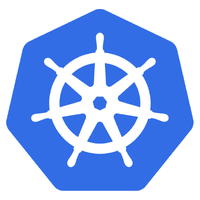Kubernetes: A Journey Back to the Beginning
September 7, 2024, 5:42 am

Location: United States, California, San Francisco
Employees: 1001-5000
Founded date: 2008
Total raised: $350M
Kubernetes, the titan of container orchestration, has transformed the tech landscape since its inception. Launched in 2014, it has become synonymous with cloud-native applications. But what if we could rewind the clock? What if we could experience Kubernetes as it was in its infancy? This article explores the Kube01 Challenge, inviting enthusiasts to relive the early days of Kubernetes by deploying version 0.1.
Imagine standing at the edge of a vast forest, the trees towering above, thick with history. Each tree represents a version of Kubernetes, growing and evolving over the years. The first tree, however, is a sapling, fragile yet full of potential. This is where our journey begins.
The Kube01 Challenge encourages participants to dive into the original codebase. The first commit, a mere whisper in the vast digital landscape, was made on June 6, 2014. It’s a call to arms for developers, a chance to see how far we’ve come. The challenge is simple: build and run Kubernetes version 0.1 on Yandex Cloud. It’s a nostalgic trip, a chance to witness the roots of a powerful tool.
To embark on this journey, one must prepare. The first step is to set up a machine running Ubuntu 14.04. This version of the operating system is like a time capsule, preserving the dependencies needed to build Kubernetes. Participants will need to install essential packages, including Git and curl. These tools are the keys to unlocking the past.
Next, the Go compiler must be retrieved. It’s akin to finding a rare artifact, a piece of history that will allow us to compile the original code. Once installed, the Kubernetes repository is cloned, and the first commit is checked out. This is where the magic happens. The command line becomes a portal to the past, allowing developers to interact with the code as it was a decade ago.
Building Kubernetes is no small feat. It requires patience and precision. The process involves setting up etcd, the backbone of Kubernetes, which was used for communication between components. In those early days, etcd was not just a storage solution; it was the lifeblood of the system. Each component registered with etcd, and the API server communicated with kubelets through it. This setup, while simple, laid the groundwork for the complex orchestration we see today.
The components of Kubernetes 0.1 were limited but essential. The apiserver managed the cluster, the controller-manager ensured tasks were running, and kubelet launched containers based on configurations. There was no authentication, making the API vulnerable. Security was an afterthought, a lesson learned as Kubernetes matured.
As we delve deeper, we encounter the abstractions that defined this early version. The concept of tasks replaced the familiar pods we know today. A task was a simple entity, containing parameters for launching a container. The replication controller, a precursor to the modern ReplicaSet, managed the number of task instances. Services, the only entity that has survived the test of time, provided a way to expose applications.
The Kube01 Challenge is not just about nostalgia; it’s a learning experience. Participants will gain insights into the evolution of Kubernetes. They will understand the challenges faced by early adopters and appreciate the innovations that have shaped the platform.
The challenge also serves as a reminder of the importance of community. Kubernetes has thrived due to the contributions of countless developers. The Kube01 Challenge is a celebration of this spirit, inviting participants to collaborate and share their experiences. It’s a chance to connect with others who share a passion for technology and innovation.
In a world where technology evolves at breakneck speed, it’s easy to forget the foundations upon which we build. The Kube01 Challenge encourages us to pause and reflect. It’s a moment to appreciate the journey, from a simple commit to a robust ecosystem that powers countless applications.
As participants embark on this challenge, they will not only build Kubernetes 0.1 but also forge connections with fellow developers. They will share tips, troubleshoot issues, and celebrate successes. This camaraderie is the heartbeat of the tech community, a reminder that we are all in this together.
In conclusion, the Kube01 Challenge is more than a technical exercise; it’s a journey through time. It invites us to explore the origins of Kubernetes, to understand its evolution, and to appreciate the community that has nurtured it. As we stand at the crossroads of innovation, let us not forget the roots that have brought us here. Join the challenge, build the past, and celebrate the future of Kubernetes.
Imagine standing at the edge of a vast forest, the trees towering above, thick with history. Each tree represents a version of Kubernetes, growing and evolving over the years. The first tree, however, is a sapling, fragile yet full of potential. This is where our journey begins.
The Kube01 Challenge encourages participants to dive into the original codebase. The first commit, a mere whisper in the vast digital landscape, was made on June 6, 2014. It’s a call to arms for developers, a chance to see how far we’ve come. The challenge is simple: build and run Kubernetes version 0.1 on Yandex Cloud. It’s a nostalgic trip, a chance to witness the roots of a powerful tool.
To embark on this journey, one must prepare. The first step is to set up a machine running Ubuntu 14.04. This version of the operating system is like a time capsule, preserving the dependencies needed to build Kubernetes. Participants will need to install essential packages, including Git and curl. These tools are the keys to unlocking the past.
Next, the Go compiler must be retrieved. It’s akin to finding a rare artifact, a piece of history that will allow us to compile the original code. Once installed, the Kubernetes repository is cloned, and the first commit is checked out. This is where the magic happens. The command line becomes a portal to the past, allowing developers to interact with the code as it was a decade ago.
Building Kubernetes is no small feat. It requires patience and precision. The process involves setting up etcd, the backbone of Kubernetes, which was used for communication between components. In those early days, etcd was not just a storage solution; it was the lifeblood of the system. Each component registered with etcd, and the API server communicated with kubelets through it. This setup, while simple, laid the groundwork for the complex orchestration we see today.
The components of Kubernetes 0.1 were limited but essential. The apiserver managed the cluster, the controller-manager ensured tasks were running, and kubelet launched containers based on configurations. There was no authentication, making the API vulnerable. Security was an afterthought, a lesson learned as Kubernetes matured.
As we delve deeper, we encounter the abstractions that defined this early version. The concept of tasks replaced the familiar pods we know today. A task was a simple entity, containing parameters for launching a container. The replication controller, a precursor to the modern ReplicaSet, managed the number of task instances. Services, the only entity that has survived the test of time, provided a way to expose applications.
The Kube01 Challenge is not just about nostalgia; it’s a learning experience. Participants will gain insights into the evolution of Kubernetes. They will understand the challenges faced by early adopters and appreciate the innovations that have shaped the platform.
The challenge also serves as a reminder of the importance of community. Kubernetes has thrived due to the contributions of countless developers. The Kube01 Challenge is a celebration of this spirit, inviting participants to collaborate and share their experiences. It’s a chance to connect with others who share a passion for technology and innovation.
In a world where technology evolves at breakneck speed, it’s easy to forget the foundations upon which we build. The Kube01 Challenge encourages us to pause and reflect. It’s a moment to appreciate the journey, from a simple commit to a robust ecosystem that powers countless applications.
As participants embark on this challenge, they will not only build Kubernetes 0.1 but also forge connections with fellow developers. They will share tips, troubleshoot issues, and celebrate successes. This camaraderie is the heartbeat of the tech community, a reminder that we are all in this together.
In conclusion, the Kube01 Challenge is more than a technical exercise; it’s a journey through time. It invites us to explore the origins of Kubernetes, to understand its evolution, and to appreciate the community that has nurtured it. As we stand at the crossroads of innovation, let us not forget the roots that have brought us here. Join the challenge, build the past, and celebrate the future of Kubernetes.


